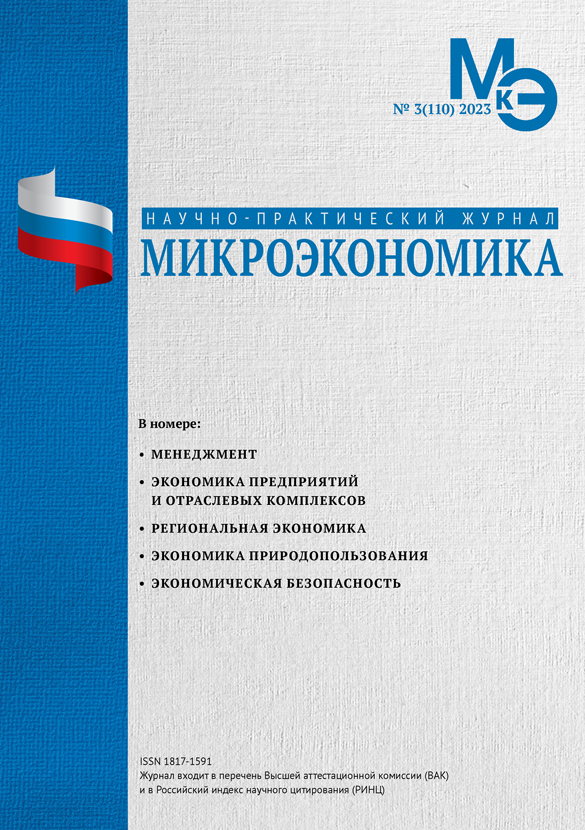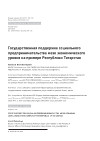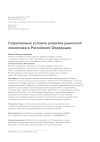State support for social entrepreneurship at the meso-economic level using the example of the Republic of Tatarstan
DOI: 10.33917/mic-5.112.2023.109-113
The scientific article summarizes the main provisions concerning the status of social entrepreneurship, including criteria for the number of employees, the wage fund, and the category of working citizens. The main measures of state support are classified using the example of the Republic of Tatarstan, including financial measures, consulting, and leasing.
References:
1. Federal Law «On the development of small and medium-sized businesses in the Russian Federation» dated July 24, 2007 N 209-FZ. URL: https://www.consultant.ru/document/cons_doc_LAW_52144/?ysclid=lnivwtgphd925897838
2. Zhokhova V.V. Social entrepreneurship: essence and concept. News of the Far Eastern Federal University. Economics and Management. 2015;1:85-98. (In Russ.).
3. Zhukovskaya I.V. Specifics of researching the service market using the example of the Republic of Tatarstan. Microeconomics. 2020;5:93-98. (In Russ.).
4. Pyatanova V.I. Social responsibility of business and value creation. Microeconomics. 2022;3:57-62. (In Russ.).
5. Ragimkhanov A.V. Systematization of scientific approaches to the study of competitiveness of services: from theory to practice. / A.V. Ragimkhanov, I.V. Zhukovskaya. Microeconomics. 2022;1:75-78. (In Russ.).
6. Tolmachev Yu.M. The role and place of social entrepreneurship in the digital economy of the Russian Federation. Economic Sciences. 2023;5 (222):363-370. (In Russ.).
7. Website of the Ministry of Economic Development of the Republic of Tatarstan. URL: https://mert.tatarstan.ru









